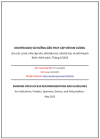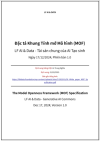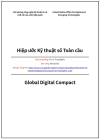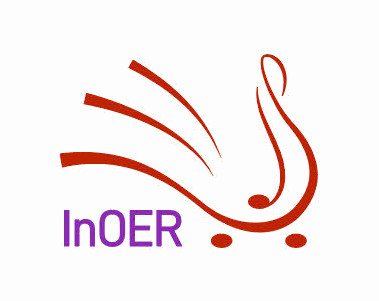Proprietary licences both frustrating and pushing move to PostgreSQL
Submitted by Adrian Offerman on August 23, 2016
Bài được đưa lên Internet ngày: 23/08/2016
Các giấy phép sở hữu độc quyền là rất phức tạp, không có khả năng tuân thủ, và bị lạm dụng để vắt các khách hàng và gây khó chịu cho các cơ quan nhà nước trong nỗ lực của họ để làm cho các hạ tầng CNTT mở và có tính tương hợp hơn. Mặt khác, các vấn đề về cấp phép đang tạo động lực cho chính các cơ quan đó chuyển sang phần mềm nguồn mở. Ban lãnh đạo Di sản Quốc gia Thụy Điển (Swedish National Heritage Board), Thành phố Ede của Hà Lan, và cơ quan DUO của Hà Lan, tất cả đều nhắc tới những giấy phép phức tạp từ các nhà cung cấp sở hữu độc quyền truyền thống như một lý do quan trọng để triển khai PostgreSQL như là lựa chọn thay thế nguồn mở cho các hệ thống cơ sở dữ liệu của họ. Cùng lúc, các nhà cung cấp đang lạm dụng các mô hình cấp phép không thể tìm hiểu của họ để cản trở các cơ quan nhà nước trong các nỗ lực chuyển đổi và tăng cường của họ.
Sự hỗ trợ không được hỗ trợ
Ví dụ, Ban lãnh đạo Di sản Quốc gia Thụy Điển Swedish National Heritage Board (Riksantikvarieämbetet, RAÄ) đã bị ép phải ký mới lại hợp đồng hỗ trợ cho một phiên bản cũ của hệ quản trị cơ sở dữ liệu mà nó đang chạy, thậm chí dù bản thân sự hỗ trợ đó theo kế hoạch sẽ sớm kết thúc. Börje Lewin, cùng lúc là kiến trúc CNTT ở RAÄ, đã đe dọa thông báo cho truyền thông. Một lãnh đạo ở nhà cung cấp cơ sở dữ liệu sau đó đã cho phép cơ quan giữ tiếp tục sử dụng hệ thống mà không có hợp đồng hỗ trợ sẽ không còn giá trị.
Theo tạp chí thương mại Computer Sweden, RAÄ đã muốn tiếp tục sử dụng một hệ quản trị cơ sở dữ liệu cũ hơn Oracle Database 9.3 trong một thời gian giới hạn, trước khi chuyển đổi sang phần mềm nguồn mở PostgreSQL.
RAÄ đã có giấy phép để cho phép nó chạy Oracle Database 9.3, nhưng Oracle đã khăng khăng rằng cơ quan cũng ký mới lại hợp đồng hỗ trợ của nó cho hệ thống. Theo nhà cung cấp này, khách hàng phải có mức hỗ trợ y hệt cho tất cả các bản sao của Oracle Database được sử dụng trong tổ chức - và RAÄ gần đây đã ký mới lại hợp đồng hỗ trợ cho một phiên bản gần đây hơn của Oracle Database. Vì thế theo Oracle, cơ quan đã có 2 sự lựa chọn. Nó có thể có giấy phép hiện hành - được mua và được trả tiền cho - bị vô hiệu hóa và dừng sử dụng phần mềm cơ sở dữ liệu ngay bây giờ. Như một sự lựa chọn nó có thể ký mới lại hợp đồng hỗ trợ cho một phiên bản phần mềm mà sớm có thể không còn được Oracle hỗ trợ nữa.
Bó trong mưu đồ bất lương
Trong bình luận theo sau, Lars Danielsson, một nhà báo ở IDG Enterprise Sweden, đã gọi những thực hành đó là “bó trong mưu đồ bất lương”. Oracle không phải là nhà cung cấp duy nhất mà các điều khoản của nó gây ra dạng khó chịu này. Y hệt đúng với IBM, SAP và Microsoft. Là khó tránh khỏi ấn tượng rằng các thỏa thuận giấy phép đó là quá phức tạp về mục đích, sao cho các khách hàng không hiểu được phần mềm thực sự đắt như thế nào. Là không dễ để thay thế một hệ thống cơ sở dữ liệu, nên các khách hàng bị khóa trói vào các sản phẩm đó và trong thực tế phải trả tiền bất kỳ chúng có giá như thế nào. Chỉ một cách duy nhất cải thiện được các mô hình cấp phép phức tạp không thể tin được đó là dừng sử dụng phần mềm này. Tiền là đòn bẩy tốt nhất.
Không thể tuân thủ
Mong muốn tránh sự khóa trói vào nhà cung cấp và xúc tác cho tính tương hợp từng là các lý do quan trọng cho Vùng tự trị Aarhus của Đan Mạch giảm sự phụ thuộc của mình và các ứng dụng sở hữu độc quyền. Theo đó, Aarhus cũng có kinh nghiệm của các nhà cung cấp gây khó chịu cho sự dịch chuyển sang các tiêu chuẩn mở. Chúng tôi thích hơn các giải pháp không gây ra những thanh toán lặp đi lặp lại đối với các phí giấy phép, quản lý dự án Camilla Taekke nói. Chúng tôi nhất quán về các giải pháp mà hỗ trợ nhu cầu của chúng tôi vì sự độc lập với nhà cung cấp.
Chương trình đánh hơi (Sniffer)
Khi Thành phố Ede dịch chuyển sang LibreOffice và Zarafa, Lindeboom đã kỳ vọng một cuộc viếng thăm từ một đại diện bán hàng của Microsoft. Thay vào đó thì Liên minh Phần mềm Doanh nghiệp - BSA (Business Software Alliance) đã tới. 2 năm trước họ đã cài đặt một chương trình đánh hơi sniffer vào mạng, vì chúng tôi đã không “có tổ chức” như cần phải có. Vì thế chúng tôi phải mua các giấy phép bổ sung của Microsoft.
Bất chấp tất cả điều này, Ede đã xử trí để đạt được tiết kiệm khổng lồ bằng việc sử dụng phần mềm nguồn mở: vào năm 2013, Dutch Berenschot đo đếm các chi phí CNTT-TT của khu tự trị đã chỉ ra rằng các chi phí giấy phép của Thành phố đã 92% ít hơn so với các khu tự trị được so sánh khác từng chi tiền cho phần mềm của họ.
Chuyển đi
Nhiều ví dụ hơn về những khó chịu tương tự là dễ dàng tìm ra. Ví dụ, sự phức tạp của các giấy phép phần mềm sở hữu độc quyền đã khuyến khích Cơ quan Greater London Authority (GLA) gia tăng sử dụng các lựa chọn thay thế nguồn mở của nó.
Một lý do quan trọng cho thành phố Leipzig chuyển sang LibreOffice và Apache OpenOffice đối với bộ phần mềm văn phòng của nó từng là khoản tiền phạt lớn được áp đặt lên vùng tự trị sau khi các nhà cung cấp CNTT nhằm nâng lợi nhuận và doanh thu, người phát ngôn của nhà cung cấp dịch vụ CNTT nội bộ trong Thành phố, nói. Trên khắp thế giới, chỉ có một nhúm người có thể hiểu được và có lẽ giải thích được các quy định giấy phép.
DUO, cơ quan chính phủ Hà Lan có trách nheiẹm về quản lý và cung cấp tài chính cho các cơ sở giáo dục của nước này, năm ngoái nói nó đã nghiên cứu phần mềm lựa chọn thay thế cho các hệ thống cơ sở dữ liệu quan hệ của nó. Và sẽ không phải là sản phẩm sở hữu độc quyền bình thường nếu không có sự phức tạp về giấy phép của nó, một người phát ngôn nói.
Proprietary licences that are very complex, impossible to comply with, and abused to squeeze customers are frustrating public agencies in their effort to make IT infrastructures more open and interoperable. On the other hand, these licensing problems are motivating the same agencies to move to open source software. The Swedish National Heritage Board, the Dutch City of Ede, and the Dutch DUO agency all mention complex licences from their traditional proprietary suppliers as an important reason to deploy PostgreSQL as an open alternative for their database systems. At the same time, suppliers are abusing their inscrutable licensing models to hinder public agencies in their migration and consolidation efforts.
For example, the Swedish National Heritage Board (Riksantikvarieämbetet, RAÄ) was forced to renew the support contract for an old version of a database system it was running, even though the support itself was scheduled to end soon. Börje Lewin, at the time IT architect at RAÄ, threatened to inform the media. An executive at the database supplier then allowed the agency to keep using the system without the soon-to-be-worthless support contract.
According to trade magazine Computer Sweden, RAÄ wanted to continue using an older Oracle Database 9.3 system for a limited time, before migrating to the PostgreSQL open source software.
RAÄ had a licence to allow it to run Oracle Database 9.3, but Oracle insisted that the agency also renew its support contract for the system. According to the supplier, a customer must have the same level of support for all copies of Oracle Database used in the organisation — and RAÄ had recently renewed a support contract for a more recent version of Oracle Database. So according to Oracle, the agency had two choices. It could have the existing licence — bought and paid for — nullified and stop using the database software now. Alternatively it could renew the support contract for a software version that soon would no longer be supported by Oracle anyway.
In a follow-up comment, Lars Danielsson, a reporter at IDG Enterprise Sweden, called these practices "bordering on a scam". Oracle is not the only supplier whose terms cause this kind of frustration. The same is true for IBM, SAP and Microsoft. It's hard to avoid the impression that these licence agreements are so complex on purpose, so that customers do not understand how expensive the software really is. It's not easy to replace a database system, so customers are locked in to these products and in practice have to pay whatever they cost. The only way to improve these impossibly-complex licensing models is to stop using this software. Money is the best lever.
The wish to avoid vendor lock-in and enable interoperability were important reasons for the Danish Municipality of Aarhus to reduce its dependence on proprietary applications. Along the way, Aarhus also has experience of suppliers frustrating the move to open standards. We prefer solutions that do not result in recurring payments for licence fees, said project manager Camilla Taekke. We insist on solutions that support our demand for vendor independence.
Open source gives you access to free software and allows you to break free of the often rigid licensing terms of proprietary vendors. In Aarhus we have systems and services whose functionality we helped to define, and which have subsequently been sold by suppliers to other customers. We have systems where access to our data is limited or completely absent, and where we have had to pay for it to be transferred to another system. We have licence bills that are so complicated and change so often that it is practically impossible to comply.
Centric, one of the largest suppliers of municipal applications for allowances and taxes, also sells Oracle licences as part of their business, Bart Lindeboom, then Computerisation and Automation director at the Dutch City of Ede, told us. In fact, in the market for municipal applications they are the main supplier. So they absolutely don't want you to switch to PostgreSQL, because they would lose both sales volume and margin. So they have a strong interest in maintaining the status quo, and keeping us on the Oracle drip. That's how they make money.
According to Lindeboom, people at Oracle are still laughing during the transitional phase of moving away from proprietary database systems. Municipalities are splitting off parts of their infrastructure and organising new collaborative partnerships. From Oracle's point of view, however, each one of these is a new entity, requiring separate licences. So at this moment, consolidation brings additional costs. That's why we are so eager to migrate to PostgreSQL, despite this huge municipal application landscape. We're currently working our way to freedom.
When the City of Ede moved to LibreOffice and Zarafa, Lindeboom expected a visit from a Microsoft sales representative. Instead the Business Software Alliance (BSA) showed up. Two years ago they installed a sniffer in the network, because we weren't as "organised" as we should have been. So we had to buy additional Microsoft licenses.
Despite all this, Ede managed to achieve huge savings using open source software: in 2013, the Dutch Berenschot benchmark for municipal ICT costs showed that the City's licence costs were 92 percent less than what other, comparable municipalities were paying for their software.
More examples of similar frustrations are easy to find. For instance, the complexity of proprietary software licences has encouraged the Greater London Authority (GLA) to increase its use of open source alternatives.
An important reason for the German City of Leipzig to move to LibreOffice and Apache OpenOffice for its office productivity was a large fine imposed on the municipality after its IT vendor did not accept the registered licences. It seems that the licensing model of the large software firms is aimed at raising turnover and profit, said a spokesman at the City's internal IT service provider. Worldwide, there are only a handful of people who can understand and perhaps explain the licence rules.
DUO, the Dutch government agency responsible for managing the financing of the country's educational institutions, last year said it was studying alternative software for its relational database systems. And it will not be the usual proprietary product with its licence complexity, said a spokesperson.
Dịch: Lê Trung Nghĩa
Ý kiến bạn đọc
Những tin mới hơn
Những tin cũ hơn
Blog này được chuyển đổi từ http://blog.yahoo.com/letrungnghia trên Yahoo Blog sang sử dụng NukeViet sau khi Yahoo Blog đóng cửa tại Việt Nam ngày 17/01/2013.Kể từ ngày 07/02/2013, thông tin trên Blog được cập nhật tiếp tục trở lại với sự hỗ trợ kỹ thuật và đặt chỗ hosting của nhóm phát triển...
 DigComp 3.0: Khung năng lực số châu Âu
DigComp 3.0: Khung năng lực số châu Âu
 Các bài toàn văn trong năm 2025
Các bài toàn văn trong năm 2025
 Các bài trình chiếu trong năm 2025
Các bài trình chiếu trong năm 2025
 Các lớp tập huấn thực hành ‘Khai thác tài nguyên giáo dục mở’ tới hết năm 2025
Các lớp tập huấn thực hành ‘Khai thác tài nguyên giáo dục mở’ tới hết năm 2025
 Tập huấn thực hành ‘Khai thác tài nguyên giáo dục mở’ cho giáo viên phổ thông, bao gồm cả giáo viên tiểu học và mầm non tới hết năm 2025
Tập huấn thực hành ‘Khai thác tài nguyên giáo dục mở’ cho giáo viên phổ thông, bao gồm cả giáo viên tiểu học và mầm non tới hết năm 2025
 Các tài liệu dịch sang tiếng Việt tới hết năm 2025
Các tài liệu dịch sang tiếng Việt tới hết năm 2025
 Loạt bài về AI và AI Nguồn Mở: Công cụ AI; Dự án AI Nguồn Mở; LLM Nguồn Mở; Kỹ thuật lời nhắc;
Loạt bài về AI và AI Nguồn Mở: Công cụ AI; Dự án AI Nguồn Mở; LLM Nguồn Mở; Kỹ thuật lời nhắc;
 Tổng hợp các bài của Nhóm các Nhà cấp vốn Nghiên cứu Mở (ORFG) đã được dịch sang tiếng Việt
Tổng hợp các bài của Nhóm các Nhà cấp vốn Nghiên cứu Mở (ORFG) đã được dịch sang tiếng Việt
 Tổng hợp các bài của Liên minh S (cOAlition S) đã được dịch sang tiếng Việt
Tổng hợp các bài của Liên minh S (cOAlition S) đã được dịch sang tiếng Việt
 Năm Khoa học Mở & Chuyển đổi sang Khoa học Mở - Tổng hợp các bài liên quan
Năm Khoa học Mở & Chuyển đổi sang Khoa học Mở - Tổng hợp các bài liên quan
 Bàn về 'Lợi thế của doanh nghiệp Việt là dữ liệu Việt, bài toán Việt' - bài phát biểu của Bộ trưởng Nguyễn Mạnh Hùng ngày 21/08/2025
Bàn về 'Lợi thế của doanh nghiệp Việt là dữ liệu Việt, bài toán Việt' - bài phát biểu của Bộ trưởng Nguyễn Mạnh Hùng ngày 21/08/2025
 ‘KHUYẾN NGHỊ VÀ HƯỚNG DẪN TRUY CẬP MỞ KIM CƯƠNG cho các cơ sở, nhà cấp vốn, nhà bảo trợ, nhà tài trợ, và nhà hoạch định chính sách’ - bản dịch sang tiếng Việt
‘KHUYẾN NGHỊ VÀ HƯỚNG DẪN TRUY CẬP MỞ KIM CƯƠNG cho các cơ sở, nhà cấp vốn, nhà bảo trợ, nhà tài trợ, và nhà hoạch định chính sách’ - bản dịch sang tiếng Việt
 50 công cụ AI tốt nhất cho năm 2025 (Đã thử và kiểm nghiệm)
50 công cụ AI tốt nhất cho năm 2025 (Đã thử và kiểm nghiệm)
 ‘Đặc tả Khung Tính mở Mô hình (MOF)’ của LF AI & Data - Tài sản chung của AI Tạo sinh - bản dịch sang tiếng Việt
‘Đặc tả Khung Tính mở Mô hình (MOF)’ của LF AI & Data - Tài sản chung của AI Tạo sinh - bản dịch sang tiếng Việt
 ‘LỘ TRÌNH CỦA TỔNG THƯ KÝ LIÊN HIỆP QUỐC VỀ HỢP TÁC KỸ THUẬT SỐ THÚC ĐẨY HÀNG HÓA CÔNG CỘNG KỸ THUẬT SỐ’ - bản dịch sang tiếng Việt
‘LỘ TRÌNH CỦA TỔNG THƯ KÝ LIÊN HIỆP QUỐC VỀ HỢP TÁC KỸ THUẬT SỐ THÚC ĐẨY HÀNG HÓA CÔNG CỘNG KỸ THUẬT SỐ’ - bản dịch sang tiếng Việt
 AI trong TVET - Một vài gợi ý triển khai trong thực tế
AI trong TVET - Một vài gợi ý triển khai trong thực tế
 Tọa đàm ‘Vai trò của Tài nguyên Giáo dục Mở trong chuyển đổi số giáo dục đại học’ tại Viện Chuyển đổi số và Học liệu - Đại học Huế, ngày 12/09/2025
Tọa đàm ‘Vai trò của Tài nguyên Giáo dục Mở trong chuyển đổi số giáo dục đại học’ tại Viện Chuyển đổi số và Học liệu - Đại học Huế, ngày 12/09/2025
 ‘Hiệp ước Kỹ thuật số Toàn cầu’ của Liên hiệp quốc - bản dịch sang tiếng Việt
‘Hiệp ước Kỹ thuật số Toàn cầu’ của Liên hiệp quốc - bản dịch sang tiếng Việt
 12 dự án AI Nguồn Mở hàng đầu để bổ sung vào kho công nghệ của bạn. 11. Hugging Face Transformers
12 dự án AI Nguồn Mở hàng đầu để bổ sung vào kho công nghệ của bạn. 11. Hugging Face Transformers
 Dự án DIAMAS đưa ra Khuyến nghị và Hướng dẫn Truy cập Mở Kim cương
Dự án DIAMAS đưa ra Khuyến nghị và Hướng dẫn Truy cập Mở Kim cương
 50 công cụ AI tốt nhất cho năm 2025 (Đã thử và kiểm nghiệm) - Trợ lý AI tốt nhất (chatbots)
50 công cụ AI tốt nhất cho năm 2025 (Đã thử và kiểm nghiệm) - Trợ lý AI tốt nhất (chatbots)
 Hướng dẫn kỹ thuật lời nhắc. Kỹ thuật viết lời nhắc. Lời nhắc Tái Hành động (ReAct)
Hướng dẫn kỹ thuật lời nhắc. Kỹ thuật viết lời nhắc. Lời nhắc Tái Hành động (ReAct)
 50 công cụ AI tốt nhất cho năm 2025 (Đã thử và kiểm nghiệm) - Trình tạo nhạc AI tốt nhất
50 công cụ AI tốt nhất cho năm 2025 (Đã thử và kiểm nghiệm) - Trình tạo nhạc AI tốt nhất
 Nâng cao tính mở và khả năng sử dụng của Hàng hóa Công cộng Kỹ thuật số bằng cách chỉ chấp nhận các bộ sưu tập nội dung và bộ dữ liệu hoàn toàn được cấp phép mở
Nâng cao tính mở và khả năng sử dụng của Hàng hóa Công cộng Kỹ thuật số bằng cách chỉ chấp nhận các bộ sưu tập nội dung và bộ dữ liệu hoàn toàn được cấp phép mở
 Vì sao Singapore đang xây dựng hàng hóa công cộng kỹ thuật số
Vì sao Singapore đang xây dựng hàng hóa công cộng kỹ thuật số
 50 công cụ AI tốt nhất cho năm 2025 (Đã thử và kiểm nghiệm) - Công cụ AI quản lý kiến thức tốt nhất
50 công cụ AI tốt nhất cho năm 2025 (Đã thử và kiểm nghiệm) - Công cụ AI quản lý kiến thức tốt nhất
 Hiểu các giấy phép CC và đào tạo AI: Một tóm tắt về pháp lý
Hiểu các giấy phép CC và đào tạo AI: Một tóm tắt về pháp lý
 Chiến lược 2023-2028 của DPGA
Chiến lược 2023-2028 của DPGA
 Hướng dẫn nghiên cứu của khoa về ChatGPT và các công cụ AI
Hướng dẫn nghiên cứu của khoa về ChatGPT và các công cụ AI
 Các công cụ pháp lý CC được thừa nhận là Hàng hóa Công cộng Kỹ thuật số
Các công cụ pháp lý CC được thừa nhận là Hàng hóa Công cộng Kỹ thuật số